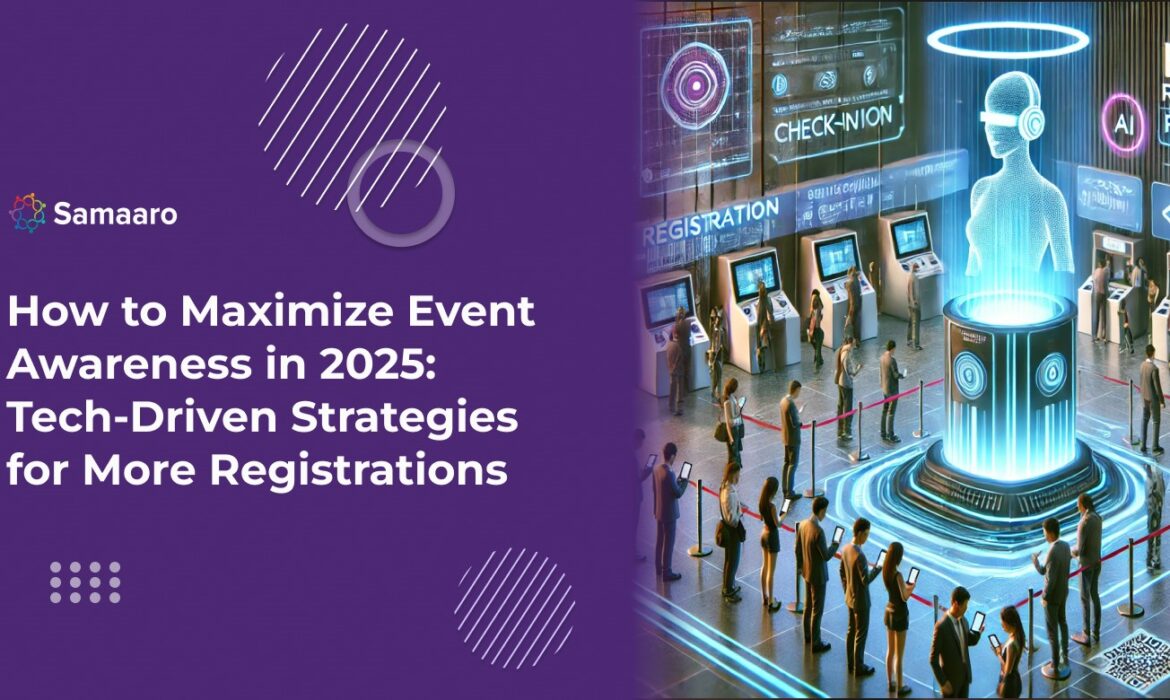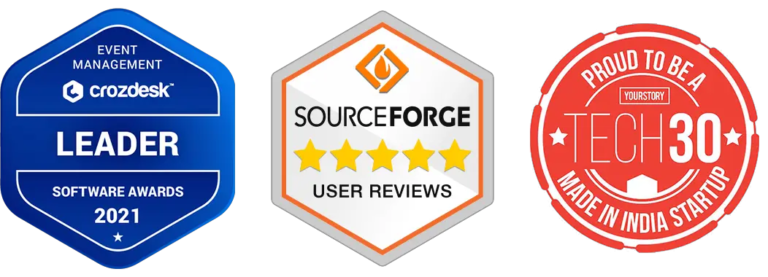Samaaro + Your CRM: Zero Integration Fee for Annual Sign-Ups Until 30 June, 2025
- 00Days
- 00Hrs
- 00Min

Event marketing isn’t what it used to be. Gone are the days when a few well-placed ads and email blasts could guarantee a packed venue. Today, attention is scarce, competition is fierce, and capturing your audience’s interest requires a more intelligent, tech-driven approach.
So, how do you cut through the noise and make your event impossible to ignore in 2025? Let’s go beyond the obvious and explore innovative event awareness strategies for 2025 that leverage AI, data, and social media in ways that truly move the needle.

Most event marketers focus too much on the bottom of the funnel—pushing last-minute registrations, discounts, and urgent CTAs. But awareness begins much earlier, and getting this stage right determines how much you’ll struggle (or not) later.
Think of the event marketing funnel in three stages:
Instead of relying on generic promotions, your goal is to craft a strategy that nurtures curiosity, builds credibility, and naturally leads to conversion.

Most marketers still treat event promotion like a megaphone. But people engage with content that feels like a one-on-one conversation, not a mass advertisement.
Example: Instead of blasting a generic “Register Now” email, AI can help segment attendees based on interests. A CMO might receive an invite focused on networking with industry leaders, while a product manager might get insights on product showcases.
Posting a countdown and hoping for registrations? That doesn’t work anymore. Social media should create conversations, not just awareness.
Example: If your event is about AI in marketing, run a poll: “What’s your biggest challenge with AI? a) Personalization b) Scaling Content c) Ethics” and use the responses to shape event sessions.
Most marketers think event engagement starts when the event begins. Wrong. It starts the moment someone interacts with your brand.
Example: If you’re hosting a B2B marketing summit, an AI-powered quiz could suggest: “Based on your responses, these 3 sessions are perfect for you.” That’s far more compelling than a generic event agenda.

Many marketers fall into the trap of tracking impressions and clicks, but these numbers mean nothing if they don’t lead to registrations. Focus on actionable metrics that directly correlate to event success:
Example: If 50,000 people visited your event page but only 500 registered, AI can analyze what’s stopping the other 49,500—whether it’s unclear messaging, poor CTAs, or an unattractive ticketing structure.
Awareness is no longer about being loud—it’s about being strategic, relevant, and data-driven.
Samaaro helps brands navigate this shift with AI-powered audience insights, dynamic social amplification tools, and interactive engagement features that make event promotions feel personal, not generic. Whether you’re looking to refine your funnel, leverage AI for better targeting, or create meaningful social engagement, Samaaro gives you the toolkit to maximize event success.

Samaaro is an all-in-one event technology company that offers a comprehensive suite of event management solutions to help event organisers streamline operations, boost attendee engagement and maximise ROI of their events.


© 2025 — Samaaro. All Rights Reserved.